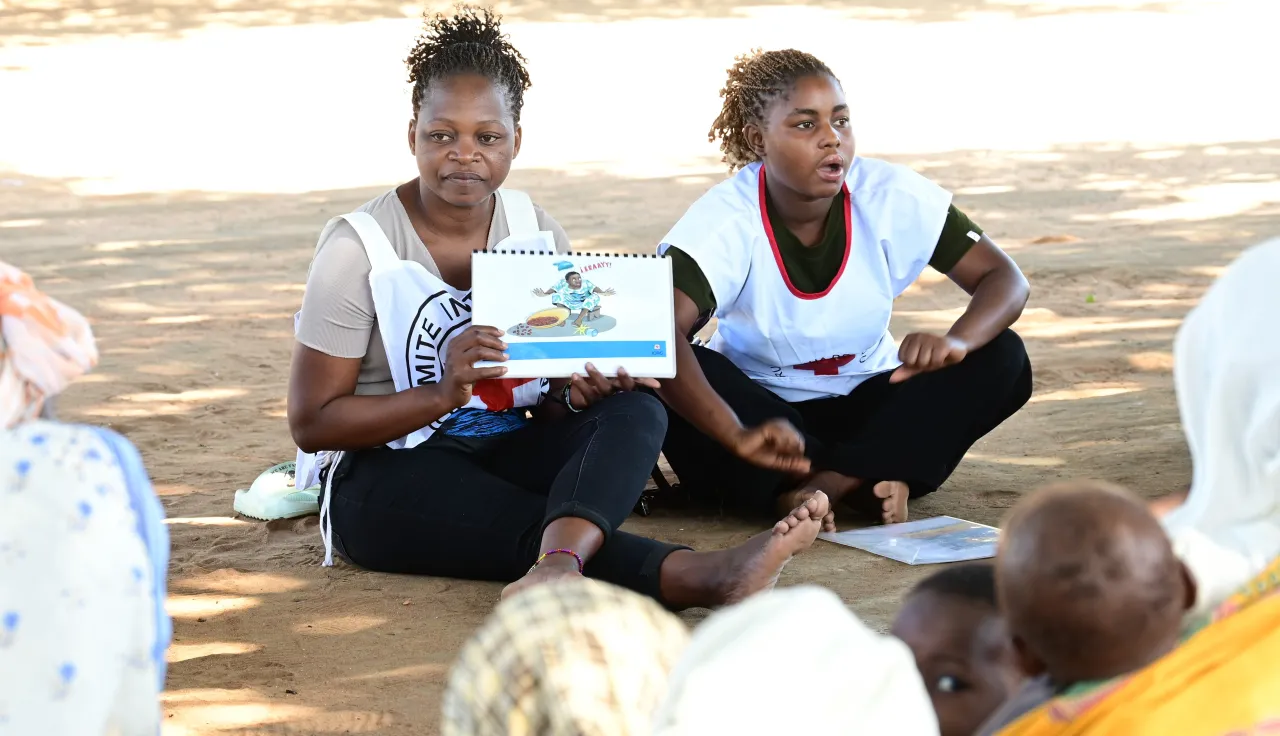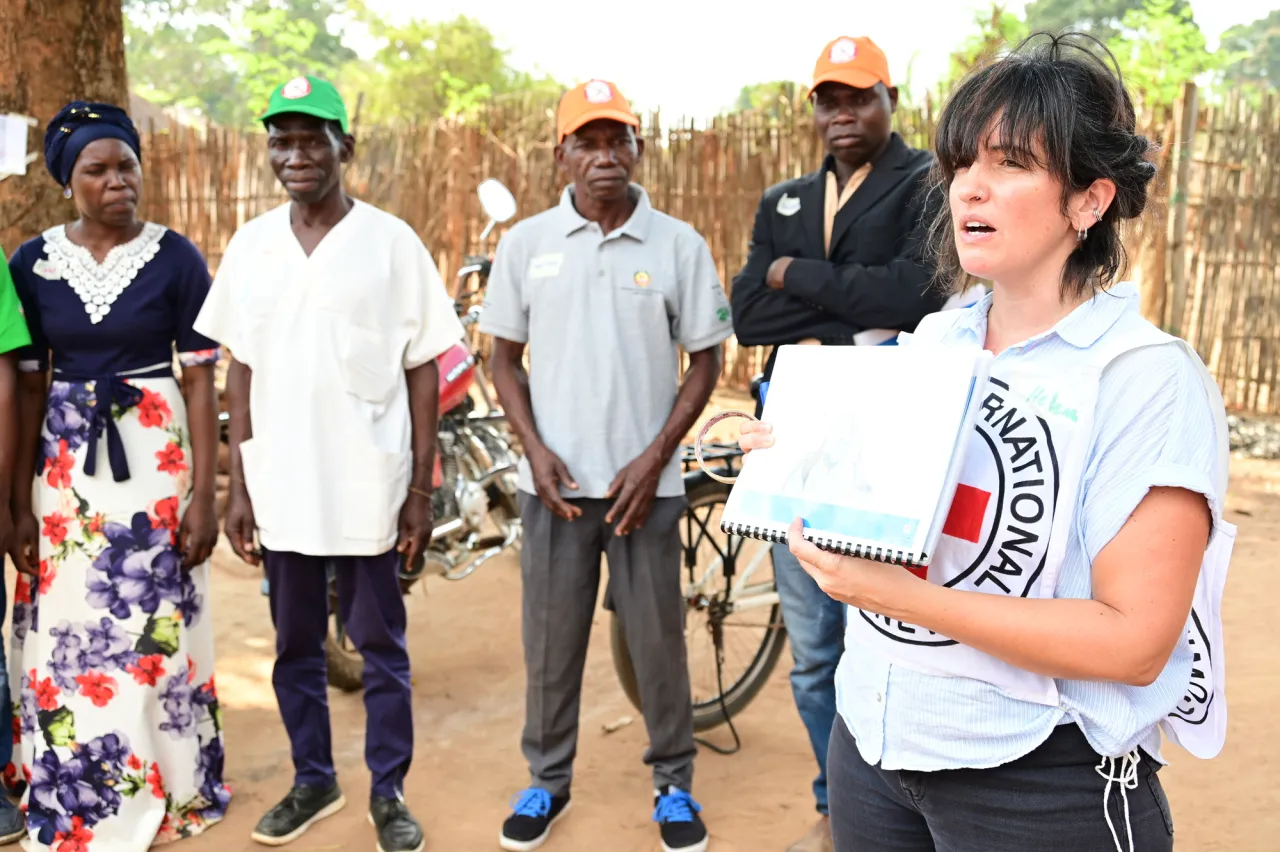Mozambique: how to improve the mental health of the conflict-affected community?

One of the consequences of the armed conflict is the psychological suffering of the affected population. According to the World Health Organization (WHO), one in five people in these communities live with mental health problems, which range from mild depression to post-traumatic stress disorder. In Cabo Delgado, Mozambique, the ICRC and the Mozambican Red Cross (CVM) are working to create a space conducive to supporting people's mental health. The head of the ICRC's Mental Health and Psychosocial Support program in the country, Helena Martins dos Santos, explains in this interview how we work to help the population.
What are the consequences of the armed conflict on the mental health of those affected?
Most people affected by armed conflict experience some level of psychological suffering, as they have suffered or witnessed violence, loss of loved ones, separation from family members. Many people are forced to flee their homes to find safety, traveling long distances in constant fear and vulnerability. At the end of the road, it is common to lack food, the possibility to work or farm, to have access to health and education, to look after yourself and your family, to recover. All these things affect mental health. In order to have mental health, we need to feel safe and be able to fulfill our basic needs.
What are the symptoms?
Many people have difficulty sleeping, are always on alert, or have nightmares and "flashbacks", they constantly think about the relatives they have lost or are missing, they cannot go through the grieving process. They are frightened by loud noises, they think it is an attack, and run off into the bush. However, for most people this psychological distress improves with time.
How are children affected?
As with adults, the impact on children depends on individual experiences and resources, as well as age. Babies and young children who witness the horrors of conflict often don't have the vocabulary to talk about what they've seen or how they feel. In conflict, flight and displacement, children have also suffered violence, loss, fear, hunger, often without understanding what is happening. Nutrition, physical and psychological distress and prolonged absence from school can also have a negative impact on child development. It is very important not to forget to communicate with children, they look to parents and caregivers for a sense of security, so it is important to talk to them, share information in a simple and age-appropriate way.

What is the purpose of the ICRC's Mental Health and Psychosocial Support program in Mozambique?
The program aims to strengthen services and the community to minimize the impact of armed conflict on the mental health of those affected. In emergency and displacement contexts, it is especially important to not only train specialist mental health services, but to also work at the community level.
How is this community support done?
It is done through people of the same community that we identify and train, together with the Red Cross of Mozambique (CVM). We train psychosocial volunteers, who carry out mental health awareness and promotion activities in displaced communities, and who refer people who need specialized care to local health services. These volunteers raise awareness through conversation circles, using images that illustrate difficulties that many people experience in situations of armed conflict. During these conversations, people can become aware that some of the difficulties such as nightmares, fears, memories and intrusive thoughts are normal in a post-traumatic situation, and recognize in which cases it is necessary to seek specialized help.
How do these activities promote community mental health?
For many people just knowing that it is normal to have these feelings, that they are not alone, and that they can talk to someone, is already very important and brings a sense of relief. Activating the support network includes promoting conversation groups and activities for women, men, children, etc. One of the activities we introduced is the production of beaded bracelets to support stress management. They gather in a circle and, as they make their own bracelets, express intentions, people who matter to them and what gives their lives meaning.
What is the role of health committees in mental health care?
Existing health committees are empowered to bridge the gap between the community and the formal health system, identifying people who need support and being referred to the necessary care. We know that there is a great stigma in relation to mental health and that people with needs in this area can be labeled and discriminated against, so this training seeks to sensitize these committees so that they are agents of integration for everyone.
How many people have been trained and benefited so far?
From January to September, 358 people from the community were trained, including psychosocial volunteers in Ibo and Montepuez districts, and health committees in Montepuez, Pemba, Metuge and Ibo. These people are supervised by us and supported to carry out activities. We at the ICRC, and these community facilitators have already reached out to 4830 people in the districts of Ibo, Montepuez, Pemba and Metuge.



